25 years of the European Youth Centre in Budapest – a brief history
1993 - Plans in motion
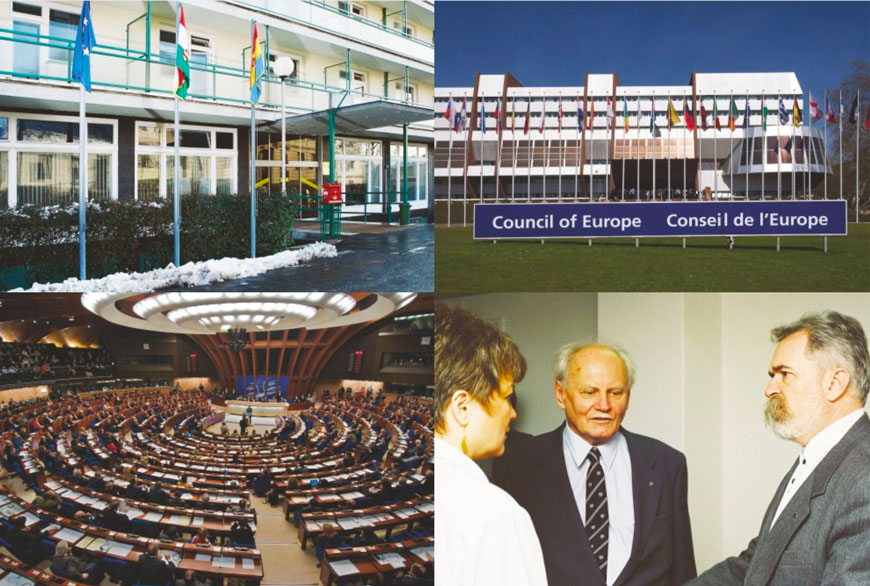
In 2020, the EYCB is celebrating its 25th anniversary. Despite this happy occasion, and like the rest of the world, we find ourselves quarantined in our homes, with our usual way of working disrupted, the future uncertain. For the next several days, we would like to invite our followers to reminisce with us about some of the memorable moments from our quarter century of work with young people and for the creation and strengthening of a culture of human rights on the European continent. In these tense and uncertain times, we are determined to stay committed to the fundamental values of democracy, human rights and the rule of law and to our belief that young people must be given the space, opportunities and tools to contribute to society. This is our mission, this is our history. #eycb25
1995 - Seat Agreement between Hungary and the CoE is signed
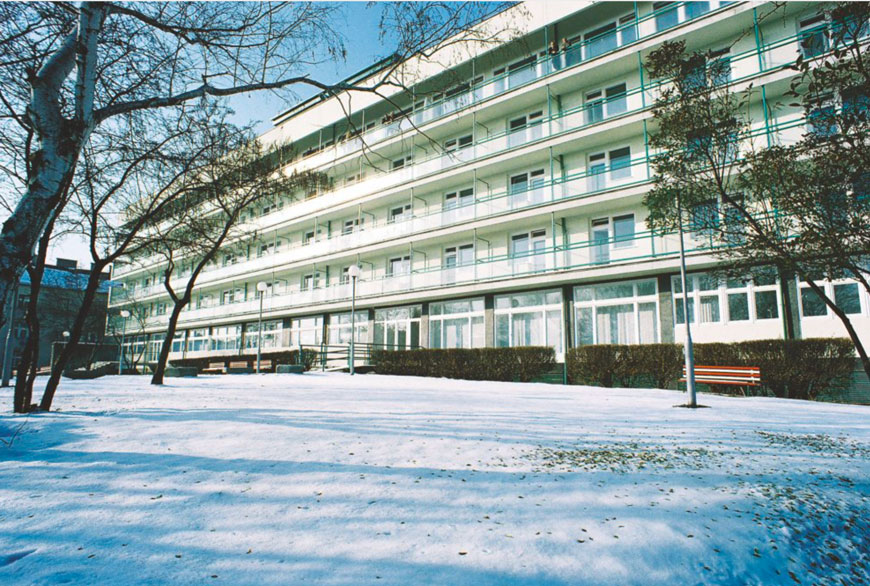
'Catherine Lalumière: ''The creation of a second European Youth Centre in a country of Central and Eastern Europe was proposed during my term as Secretary General of the Council of Europe. At that time Europe was just beginning to take on board the implications of the historic changes that had taken place in 1989. It was clear to my colleagues and I that the Council of Europe had a crucial role to play in the process of reunifying the once divided continent.''
Catherine Lalumière was Secretary General of the Council of Europe from 1989 to 1994, prior to which she was a member of the Parliamentary Assembly of the Council of Europe and Secretary of State for European Affairs in the French Government from 1984 to 1986. #eycb25
15 December 1995 - Inauguration of the EYCB
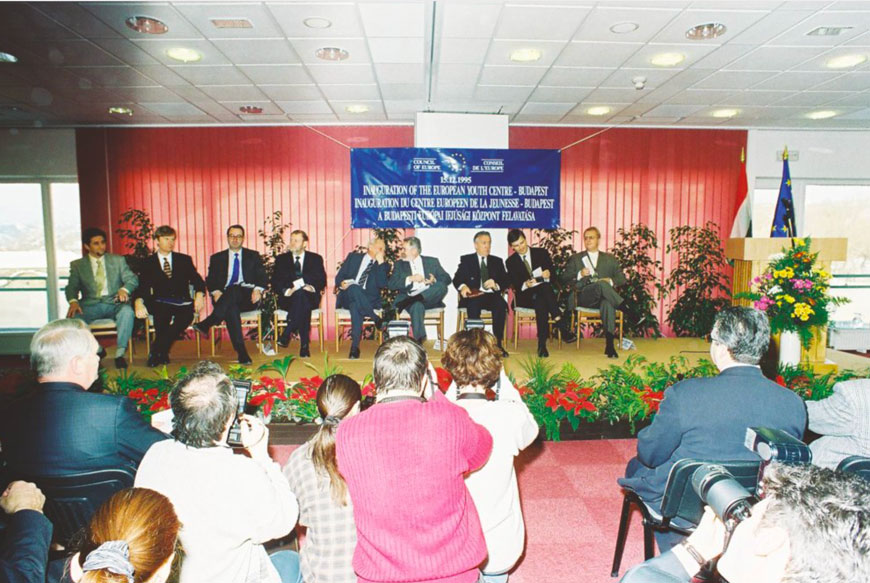
Daniel Tarschys: ''When I received the key to the building on the occasion of the inauguration of the Centre, I hoped that young people in Europe would understand this initiative as a positive measure to support their participation and their mobility. I am convinced that the opportunity to meet peers from different countries and from different political, social and cultural backgrounds is an important impetus for active citizenship and for demonstrating civic responsibility.''
Daniel Tarschys was Secretary General of the Council of Europe from 1994 to 1999. During his term the Council of Europe and the Hungarian authorities concluded the seat agreement that regulated the establishment of the European Youth Centre Budapest. #eycb25
1996 - 1 year of activity
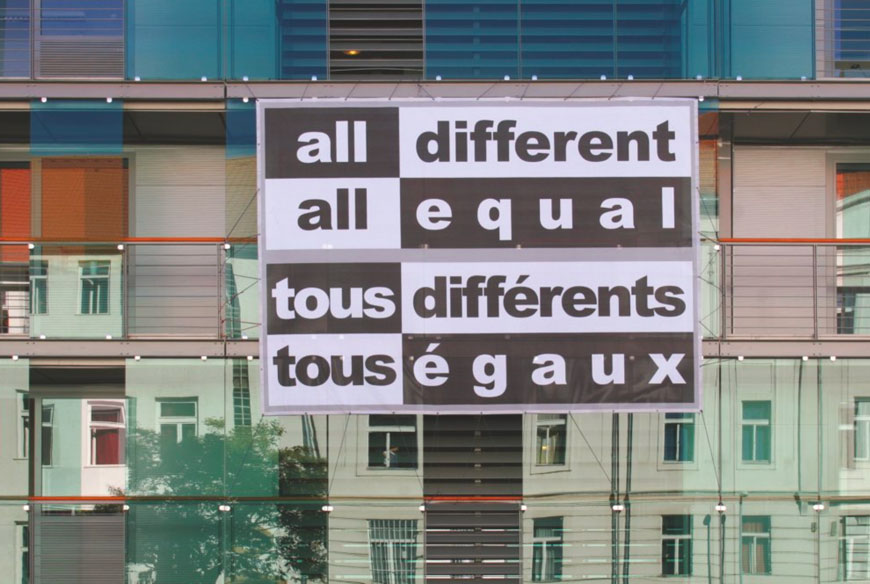
Antje Rothemund: ‘’The all different – all equal campaign mobilised civil society and public authorities alike, during the predominantly optimistic and open atmosphere of post-Cold War democratic transition in Europe. One of the most remarkable and visible impacts of the campaign was that the Council of Europe and its youth sector managed to reach a large diversity of new partners. Young people from different minorities were invited to take part in the campaign and consequently participated also in education and training activities in the European Youth Centres. During the 1990s, Hungary had one of the most liberal visa policies in the world, thus the European Youth Centre Budapest became one of the key locations to implement activities of the all different-all equal campaign and its follow-up youth activities during the years after. Key activities like the first Long-Term Training Course for Minority Youth Leaders, Roma youth leaders trainings, the Euro-Mediterranean cooperation and seminars with youth and human rights activists from war struck republics of the then disintegrating Yugoslavia took place at the EYCB. Thousands of young people from the then ‘old, new and future member states’ had their first experience of pan-European cooperation and with the Council of Europe.’’
Antje Rothemund joined the Council of Europe in 1991. Since October 2014, she has been the Head of the Youth Department in the Directorate General of Democracy. From 2011 to 2014, she was the Head of the Council of Europe Office in Belgrade. Antje is an educationalist specialised in adult education and has been from 1999 – 2011 the Executive Director of the European Youth Centre of the Council of Europe in Budapest, Hungary.
The 2nd All Different – All Equal youth campaign for Diversity, Human Rights and Participation mobilised young people to:
- know their rights
- believe in and respect human rights
- value every member of society as a human being
- feel valued themselves as human beings
- become involved, participate and actively contribute to open, inclusive and democratic societies!
1997 - Long-Term Training Course for Minority Youth Leaders
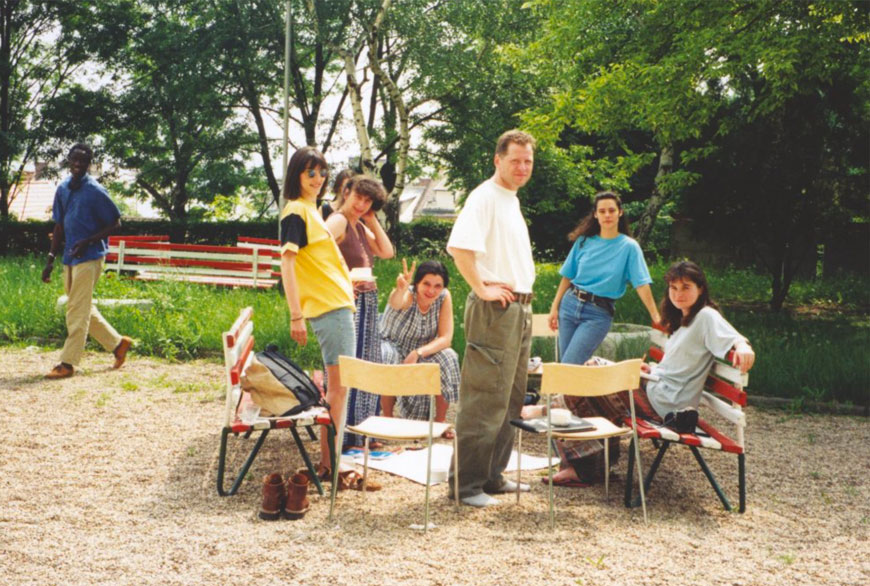
Alexandra Raykova: ‘’I remember being very impressed with the building and with the facilities of the EYCB. Since then I have been a member of the training team of several training courses that have taken place at the EYCB and have had the opportunity to really test its working facilities, including several editions of the Long Term Training Course Participation and Citizenship for Minority Youth Leaders, the Long Term Training Course South East Europe and a study session of Young Women for Minorities. The Centre's service has adapted really well to the diversity of groups it receives. To feel that they are safe from prejudice and discrimination when they meet is of paramount importance for young people from minority backgrounds, especially as it may be their first chance to travel abroad or their first opportunity to meet young people from other countries and to discuss common problems and points of controversy for their communities.’’
Alexandra Raykova is a founding member of both the Forum of European Roma Young People and the European Roma and Travellers Forum.
1999 - A weeklong street festival to celebrate the 50th anniversary of the CoE
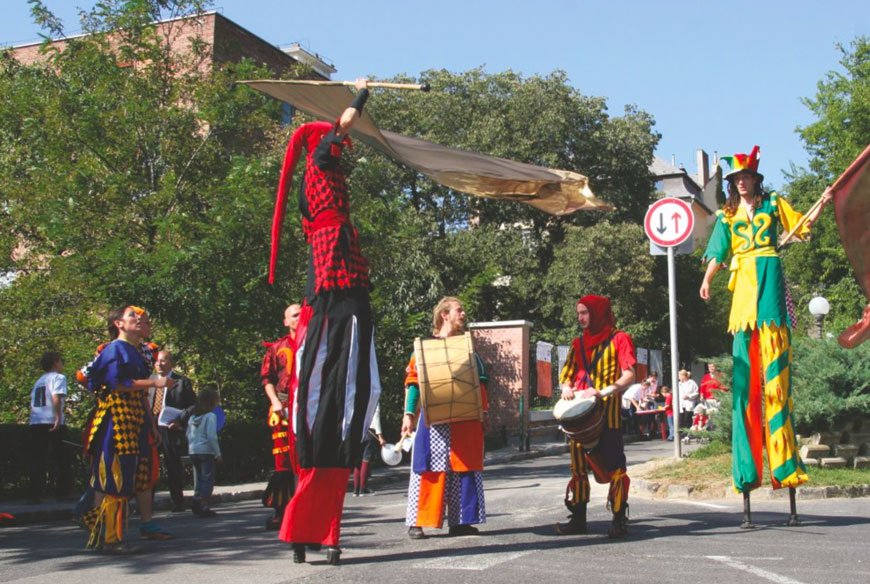
The 50th Anniversary of the Council of Europe was celebrated in Budapest with a series of events entitled 'Europe -Youth – Human Rights'; it included an exhibition on the Council of Europe, a Street Festival with a very diverse cultural programme including jazz and folk music, street theatre and animation, an NGO market, an open-door day at the European Youth Centre with workshops and lectures on subjects related to the theme of human rights, and a Human Rights Week, in which the value and practice of human rights in Europe was challenged and debated.
With this month of action, the EYCB developed a new programme feature: the participation of 'day guests' in selected activities. This meant that the Centre offered short programmes that could be attended by an interested local public without having to pass any selection process.
2000 - The Mobilitás Youth Information Service opens
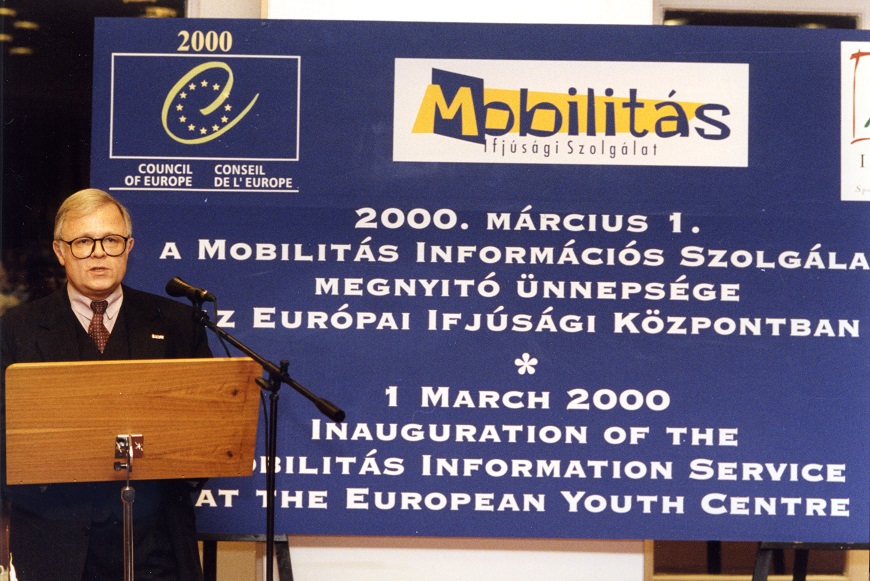
Tamás Deutsch: ‘’When I was Minister it was one of my priorities to find ways to build bridges between the international work of the Centre and the local and national youth scenes in Hungary. One of the most important steps we took in this direction was the creation of the Mobilitás Information Service on the premises of the EYCB. This initiative was important for two reasons: in the first place, the information centre brings under one roof a variety of services for young people provided by the national authorities, the European Union and the Council of Europe. In the second place, it demonstrates that the Hungarian youth sector has also experienced a 'change of regime', even if it came later than 1989.
Altogether the establishment of the Mobilitás Information Service demonstrates that Hungary has attained a certain maturity in its European relations, as well as in the implementation of a youth policy that has been informed by European standards.’’
Tamás Deutsch was Minister of Youth and Sports from 1999 to 2002. The Ministry was established in 1998 and he became the first ever minister of youth in Hungary.
2000 - First International Human Rights Education Forum at EYCB
Walter Schwimmer: “In a few days’ time, the European Convention on Human Rights will be fifty years old – the age of maturity and experience. Forty-one European states have ratified the Convention, and any member of the public can apply directly to the Court in defence of the basic rights contained in it. Europe is the only continent in the world to afford each and every citizen this quality of protection, with an experienced international court safeguarding fundamental rights.” (in the Frankfurter Allgemeine Zeitung on 14 October 2000) .
Walter Schwimmer is a former Secretary General of the Council of Europe.
2002 - Compass launched
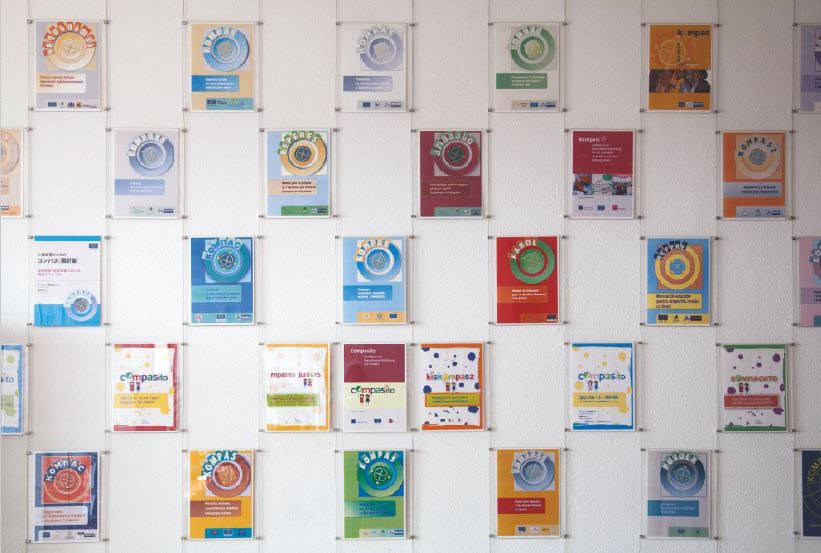
Sunduss Al-Hassani: ‘’With the support of the resources and materials developed by the EYCB, and particularly COMPASS, we set up a human rights department and developed a whole new perspective on the issue of Muslim youth identities and situations in Europe.’’
Sunduss Al-Hassani is a member of the Executive Committee of the Forum of European Muslim Youth and Student Organisations (FEMYSO).
2003 - First Living Library at Sziget Festival
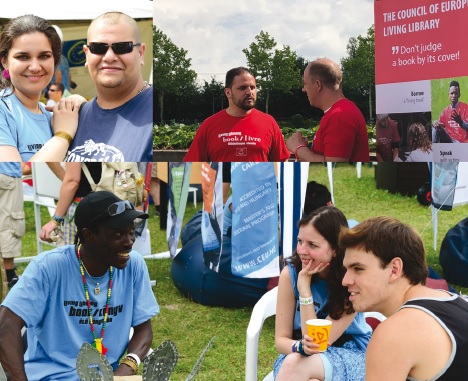
Those familiar with programs promoting intercultural dialogue, human rights, pluralism, and democratic participation – be it in civil society, adult education or youth work – are frequently confronted with the challenge of coming up with something truly ‘new’ and inventive, something that attracts widespread attention and makes genuine impact.
The Living Library methodology is one such concept. Its primary aim is to create constructive personal dialogues between people who would normally not have the opportunity to speak to each other and thus challenge common prejudices and stereotypes. It is particularly suitable for large scale public events, such as festivals and other gatherings attended by hundreds or even thousands of people.
The Living Library is essentially an opportunity for intercultural learning and personal development aimed at people who have little or no access to or time for non-formal educational programs.
2005 - 10 years EYCB
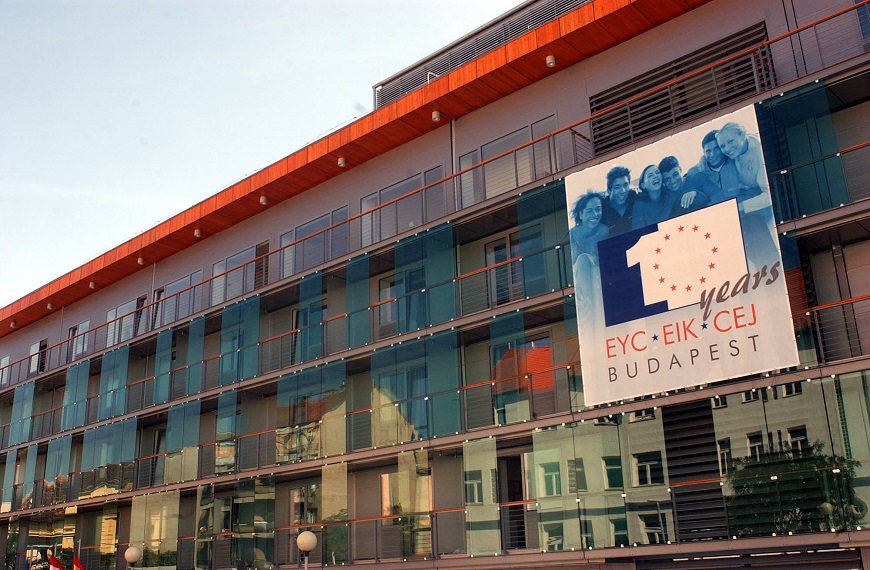
Antje Rothemund: ‘’Within the Council of Europe's fleet, the EYCB is a small, yet sturdy and well appointed ship. It is exposed to the general weather conditions of the European seas. It is used to waves, winds, sunny periods as well as chilly spells. [...] In the 10 years of its existence, the EYCB has travelled far. Its 10th anniversary is an occasion for the large variety of people, driven by strong political will, commitment to European ideals, professional ethics and the belief in the capacity of young people, to look back and be proud of the common achievement that the EYCB undoubtedly is. In so doing, they might also gain a healthy pinch of courage and readiness to take even more risks.’’
Antje Rothemund joined the Council of Europe in 1991. Since October 2014, she has been the Head of the Youth Department in the Directorate General of Democracy. From 2011 to 2014, she was the Head of the Council of Europe Office in Belgrade. Antje is an educationalist specialised in adult education and has been from 1999 – 2011 the Executive Director of the European Youth Centre of the Council of Europe in Budapest, Hungary.
2006 - Relaunch of ‘’All different - All equal’’
The ‘All Different - All Equal’ European youth campaign for diversity, human rights and participation was part of the action plan adopted by the official Summit of heads of state and government in Warsaw, which states the following: “(…) To promote diversity, inclusion and participation in society, we decide to launch a Europe-wide youth campaign, in the spirit of the European Youth Campaign against racism, xenophobia, antisemitism and intolerance’ (1995).”
The campaign ran from June 2006 to September 2007, in cooperation with the European Union and the European Youth Forum. It was based on national campaign committees who mobilized the relevant partners and organised their own programme for the campaign in each member state.
The richness of European society lies in its cultural diversity, expressed also by the number of minority groups and communities present in the national states. Whether national, religious, ethnic, social or cultural, minorities are an important asset for a future intercultural Europe. Moreover, the immigration flows resulting from globalisation and increased interdependence are likely to further increase this multiculturalism.
2008 - Peter Lauritzen Library opens
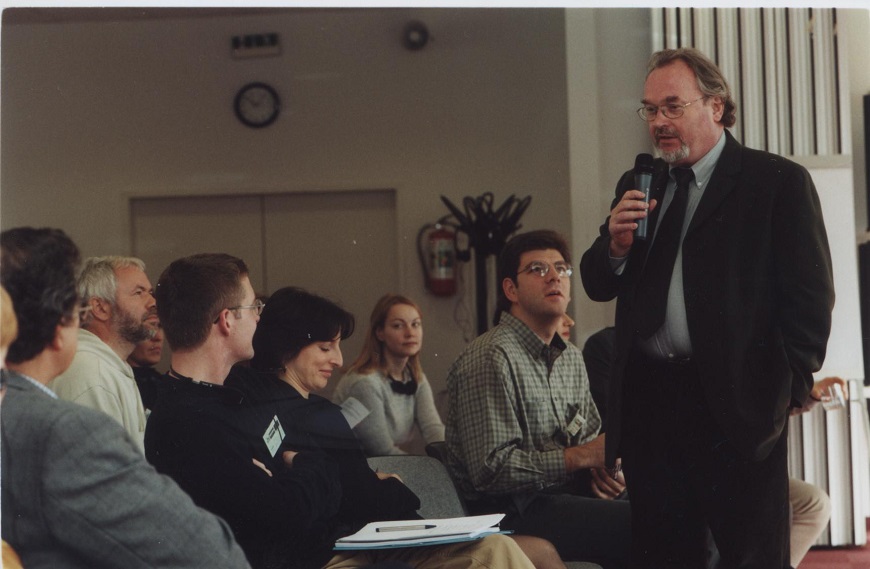
This collection of professional literature in sociology, political science, research and education represents a very rich resource for study and learning.
Peter Lauritzen’s family kindly donated his professional library of several hundred books to the Council of Europe.
Following the decision of the Joint Council on Youth, the books have become part of the collection of the EYCB’s library.
As an appreciation of the donation and an open source for study research, the collection has been catalogued and has been named “The Peter Lauritzen collection”. The collection is available for study and research at the EYCB.
Peter Lauritzen (1942 – 2007) served the Council of Europe’s youth sector for 35 years. He joined the Council of Europe in 1972 as first Tutor of the then newly established European Youth Centre in Strasbourg. In 1985 he became Deputy to the Director of the Centre. From 1995 to 1999, he was the first Executive Director of the European Youth Centre Budapest, which became the first permanent service of the Council of Europe in a country of Central and Eastern Europe. From 1999 – 2007, he was Head of the Youth Department and Deputy to the Director of Youth and Sport.
Peter Lauritzen committed his whole career to the development of the Council of Europe youth sector and was instrumental in shaping youth policy, youth research, youth work and youth participation in Europe.
His personal and professional commitment to the European project and his sincere trust in young people’s force to bring about positive changes was driving the sector’s development over decades.
2009 - Living, learning, acting for human rights (second forum on human rights education)
Like an extra candle on the cake, the celebrations of the 60th anniversary of the Council of Europe featured another anniversary, and celebration. Ten years after the inaugural Human Rights Education Forum in 2000 – a forum that built on the action month Europe-Youth-Human Rights – participants from local, national and international associations and organisations from across Europe gathered in Budapest for a second time.
This Forum on Human Rights Education with and by Young People was far more than an anniversary; it was shaped by the need to reflect on the recent past, and to distill from that reflection the directions that human rights education should and can take in the future.
2010 - Living Library at Pécs European Cultural Capital
The Living Library became part of the Council of Europe’s programme in 2003 and the driving force behind its inclusion was the realisation that human rights cannot be defended and promoted by legal texts alone. There is – today more than ever in the recent past – a need to raise awareness among the wider public about the importance of human rights to the fabric of our democracies and the responsibility of the individual citizen in realizing abstract human rights in their everyday lives.
Through its long history, the Council of Europe’s youth sector has gathered unique and important experience in the field of non-formal and intercultural education based on the principles of human rights, pluralist democracy, and cultural diversity. The Living Library is a unique example and distillation of this experience and it continues to be used widely across Europe and around the world.
2010 - 1st European Platform of the CoE quality Label for youth Centres
The European Platform of Youth Centres is organised annually in order to encourage professional knowledge sharing among youth centres recognised with the Quality Label and those aspiring to its acquisition.
The first platform meeting was held in 2010 in the European Youth Centre in Budapest, although since then many other youth centres rewarded with the Quality Label have provided a home to this event.
Through the years of its existence the platform developed to be an important event for youth centres, and as of 2018 some new approaches are being implemented regarding its organisation. Platform meetings are mainly about strategic issues of common interest related to the running of a youth centre, held primarily in either of the two Council of Europe Youth Centres of Budapest or Strasbourg. Complementary to the Platform meetings, training courses are also organised within the frameworks of the Quality Label Programme.
These occasions ensure sharing of good practices amongst educational staff of youth centres. The training courses are usually hosted by a Quality Label youth centre who most closely matches the theme of the course – in order to utilise that centre's expertise and knowledge.
2011 - Launch of Living Library School project in Hungary
Building on its experience with the original Living Library concept and working together with Hungarian civil society partners, the EYCB developed and launched a pilot project bringing the Living Library into the formal school environment. The new methodology allows for the introduction of key concepts of stereotyping, prejudice and discrimination into the classroom curricula through experiential and non-formal learning, using the Living Library experience.
Since the successful pilot project, several dozen Hungarian schools and over 3000 students participated in these unique classroom Living Libraries.
2012 - Youth peace Ambassadors Networking Conference
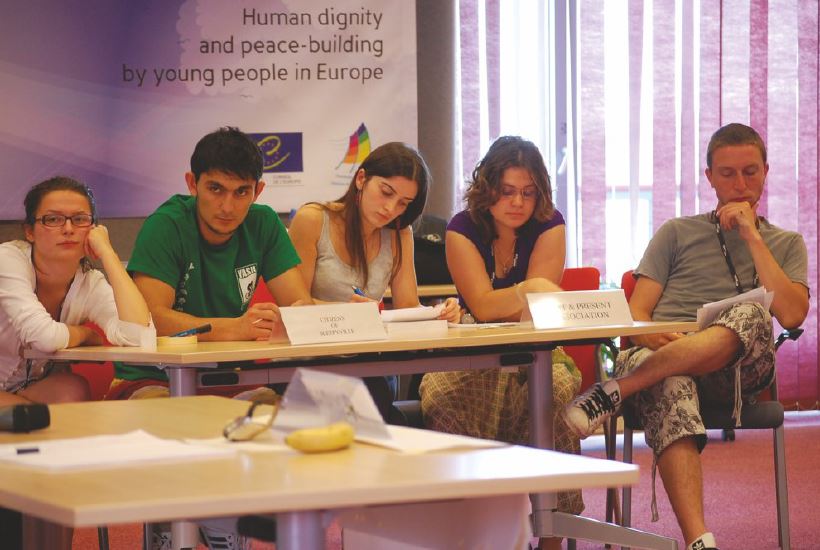
The Youth Peace Ambassadors was a Council of Europe project carried out between 2011 and 2014 in several phases. The project promoted and supported the role of young people in peace-building activities that contribute to living together in dignity and dialogue. The project was based on human rights, intercultural dialogue, youth participation and democratic citizenship processes in Europe and was built on the idea that young people are able and should be active citizens and protagonists of social change in conflict-affected communities.
Young people active in youth-led civil society organisations and initiatives from across Europe were selected to take part in this 3-years project and become Youth Peace Ambassadors. During the project, they learnt about peace and human rights, developed local projects for peace and advocated for human rights and dignity. They thus act as ambassadors for the values of human rights, peace, and intercultural dialogue, and keep on also bringing these values to youth work and to youth initiatives in their communities. The participants were also committed multipliers involved in an organisation or network, institution and/or informal group.
2012 - No hate Speech movement launched
The No Hate Speech Movement was a youth campaign led by the Council of Europe Youth Department seeking to mobilise young people to combat hate speech and promote human rights online.
Launched in 2013, it was rolled out at the national and local levels through national campaigns in 45 countries. The movement has remained active beyond 2017 through the work of various national campaigns, online activists and partners.
2014 - First Annual Human Rights Forum and Fair
Despite the growing understanding across Council of Europe member states of the relationship between education and Europe’s overall democratic health, in many countries education for citizenship and human rights are not sufficiently mainstreamed and in some areas of learning they are often entirely absent.
The Council of Europe supports the promotion of human rights, democracy and the rule of law through education. With the 2010 adoption of the Charter on Education for Democratic Citizenship and Human Rights Education the member states committed themselves to “the aim of providing every person within their territory with the opportunity of education for democratic citizenship and human rights education.” Although the charter is a non-binding legal instrument, it provides a unique common European framework of reference and is a focus and catalyst for action in the member states. The 2017 Report on the state of citizenship and human rights education shows that the greatest challenge remains the lack of priority to education along with a lack of recognition of the work done by civil society and youth organisations.
The 2014 Human Rights Forum & Fair of the European Youth Centre Budapest (EYCB) aimed at taking stock of the state of human rights and citizenship education in Hungary with the explicit aim of reinvigorating, strengthening and further expanding the network of organizations, practitioners, educators, and donors who are the key stakeholders in this vital field.
The 2014 Forum revealed an abundance of innovative and worthy initiatives – mostly non-formal education projects run by civil society organisations – but also highlighted lack of cooperation amongst the practitioners, dearth of resources, lack of clarity on the preferences of donors, and inadequate presence of human rights and citizenship education in the formal school setting, to just name a few of the considerable challenges afflicting this vital area of education.
2015 - Roma Youth Conference
The Council of Europe has worked with Roma young people since 1995 and has developed, in co-operation with its governmental and non-governmental partners, a Roma Youth Action Plan. In 2011, the first Roma Youth Conference was organised by the Council of Europe, during which Roma youth people, youth leaders, members of international Roma youth networks and other international institutions defined the priorities for the Roma Youth Action Plan. The Roma Youth Action Plan is a response of the Council of Europe to the challenges faced by Roma young people in Europe, particularly in relation to their empowerment, participation in policy decision-making processes and structures at European level and multiple realities of discrimination.
The action plan includes activities of the Youth Department and of other sectors of the Council of Europe, as well as activities by other partners – intergovernmental and non-governmental – cooperating with the Council of Europe. The action plan gives priority to human rights and intercultural dialogue as responses to discrimination and anti-gypsyism, together with the development and capacity-building of Roma youth organisations and movements.
The overall plan follows an approach of “double mainstreaming”: promoting the inclusion of youth-related matters in policies and programmes dealing with Roma issues and promoting the inclusion of Roma youth and related issues in youth policies and programmes. Since 2011, the Roma Youth Action Plan has included a wide variety of activities, training courses, development of expertise related to the situation of Roma youth, educational manuals, study sessions in co-operation with international youth organisations, study visits at national level, support and funding to Roma youth projects and policy advising activities.
The implementation of the Roma Youth Action Plan is led by the Youth Department in close cooperation with Roma youth organisations and other European stakeholders on Roma and youth policies.
2016 - Study Sessions at the EYCB
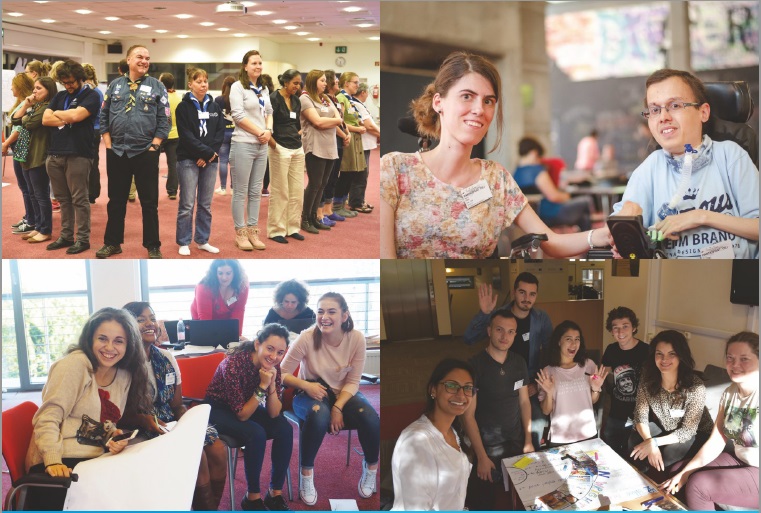
Study Sessions are international educational youth seminars bringing together members of youth organisations and experts for discussions on a specific subject leading to conclusions relevant to the priorities of the Council of Europe. Study Sessions are organised in co-operation with youth organisations and networks, and are hosted by one of the European Youth Centres in Budapest or Strasbourg.
The selection of topics and partner organisations for study sessions is based on applications submitted twice a year by youth organisations and decided upon by the Programming Committee on Youth.
The study sessions have been at the core of the Council of Europe’s youth sector since 1972 with around 20-25 of them taking place annually.
2017 - Training of Trainers in Human rights Education with young people
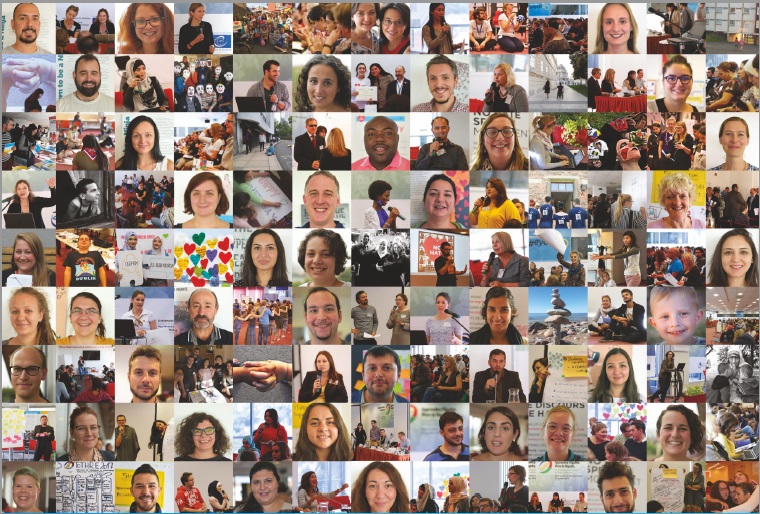
This training course supports the role of youth organisations and develop the competences of trainers and multipliers to apply and develop quality human rights education with young people, especially at national and local level and to advocate for the further mainstreaming of human rights education in youth policy and youth work.
Objectives of this course are:
- To strengthen participants’ understanding of key concepts of human rights education with young people
- To review and address the essential competences, skills and attitudes for trainers working with human rights education in non-formal learning settings
- To familiarise participants with the approaches and activities of Compass (the manual on human rights education with young people) and with how to best use it and adapt it to local contexts and realities
- To analyse current developments in human rights education, including dimensions of digital citizenship and online activism
- To develop knowledge and skills in advocacy for human rights education at local and national level based on the Council of Europe Charter on Education for Democratic Citizen and Human Rights Education
- To motivate and enable the participants to actively use information and communication technology as part of their own learning and in their human rights education activities
- To associate the participants and their organisations with the priorities of the Youth Department of the Council of Europe related to human rights education especially in the follow-up to the No hate Speech Movement campaign
- To contribute to the development of networks of trainers on human rights education with young people and to the mainstreaming of human rights education in youth work and non-formal learning.
2018 - Youth Peace Camp
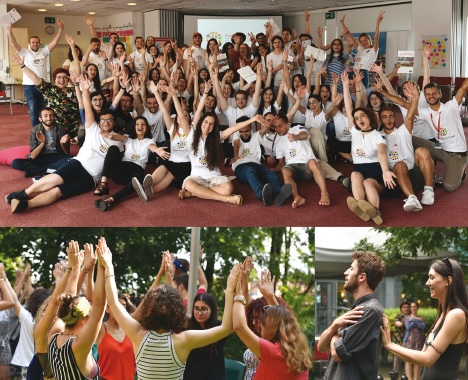
The Youth Peace Camp allows young people and youth organisations from conflict-stricken regions to engage in dialogue and conflict transformation activities based on human rights education and intercultural learning. The Youth Peace Camp builds on the understanding that young people growing up in regions affected by armed conflicts and enduring the consequences of extreme forms of violence are often confronted with dramatic life experiences and challenges. Such experiences may strongly influence their views and behaviour towards their own and other communities.
Despite this, many young people choose to engage in constructive initiatives and dialogue instead of multiplying hatred and rejection. The Youth Peace Camp provides the space for these young people, supporting them in their role as peer leaders and educators, to sensitise and involve other youth in dialogue, mediation, intercultural communication, conflict transformation and peace work projects.
The Youth Peace Camp is taking place on an annual basis and interchangeably in Budapest and Strasbourg, giving young people from conflict areas a positive experience in living and learning together.
2019 - Ten years of CoE Quality Label for Youth Centres
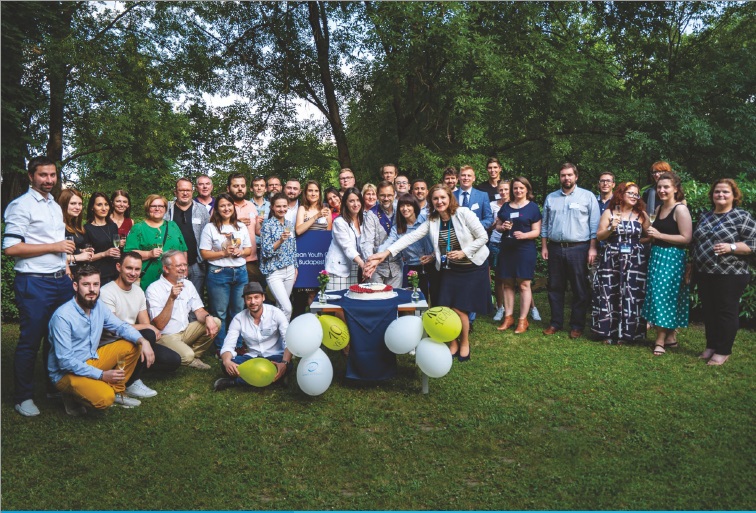
The Council of Europe Quality Label for Youth Centres programme provides an opportunity for youth centres to benefit from the Council of Europe’s approach to youth work and youth policy. It offers residential, educational youth centres a framework within which to develop the quality of their offer to young people and the youth sector at their own pace.
Each year the programme organises an annual European Platform for Youth Centres for the managers, and a training course on human rights education for the pedagogical staff of the affiliated youth centres. Currently 14 youth centres across Europe are labelled by the Council of Europe.


